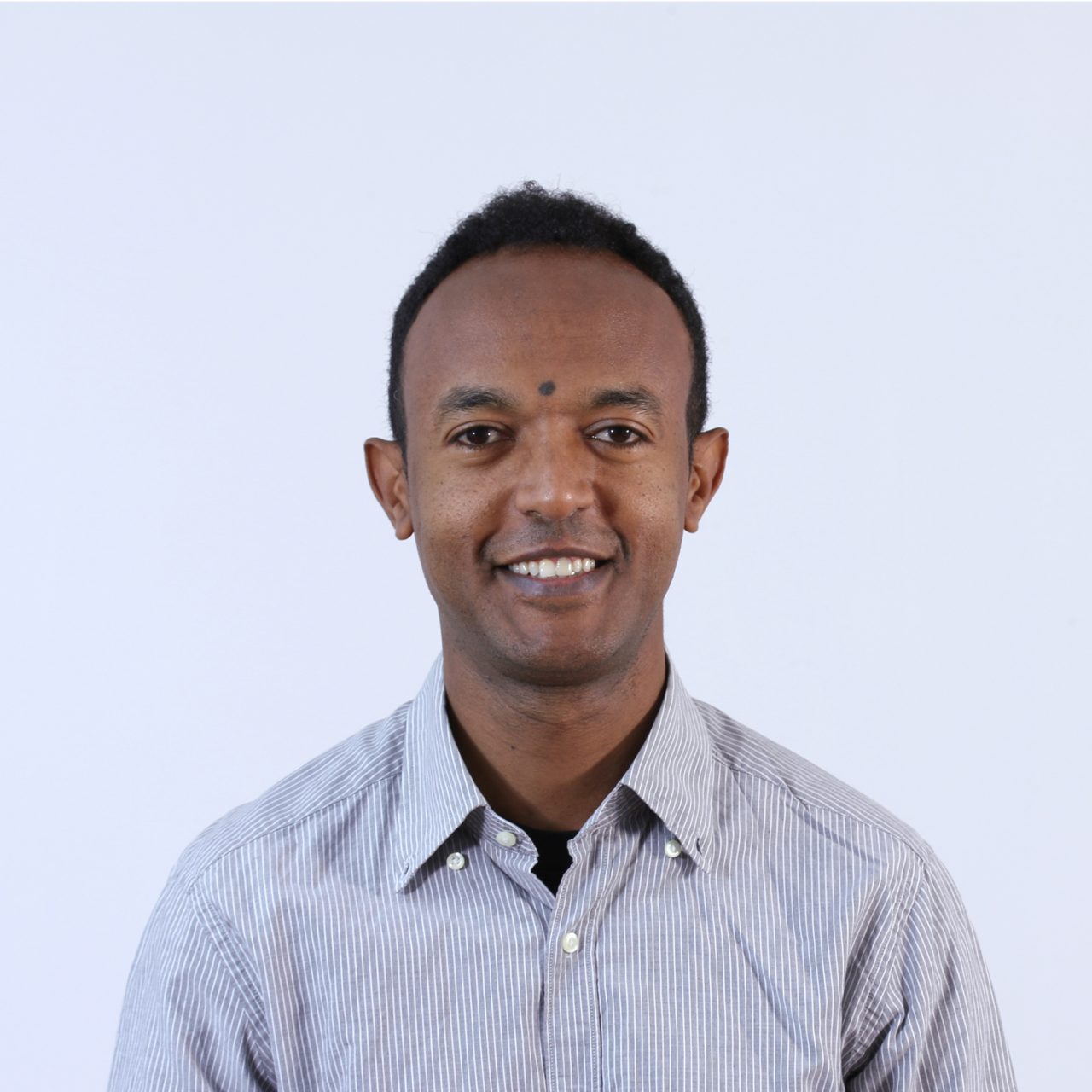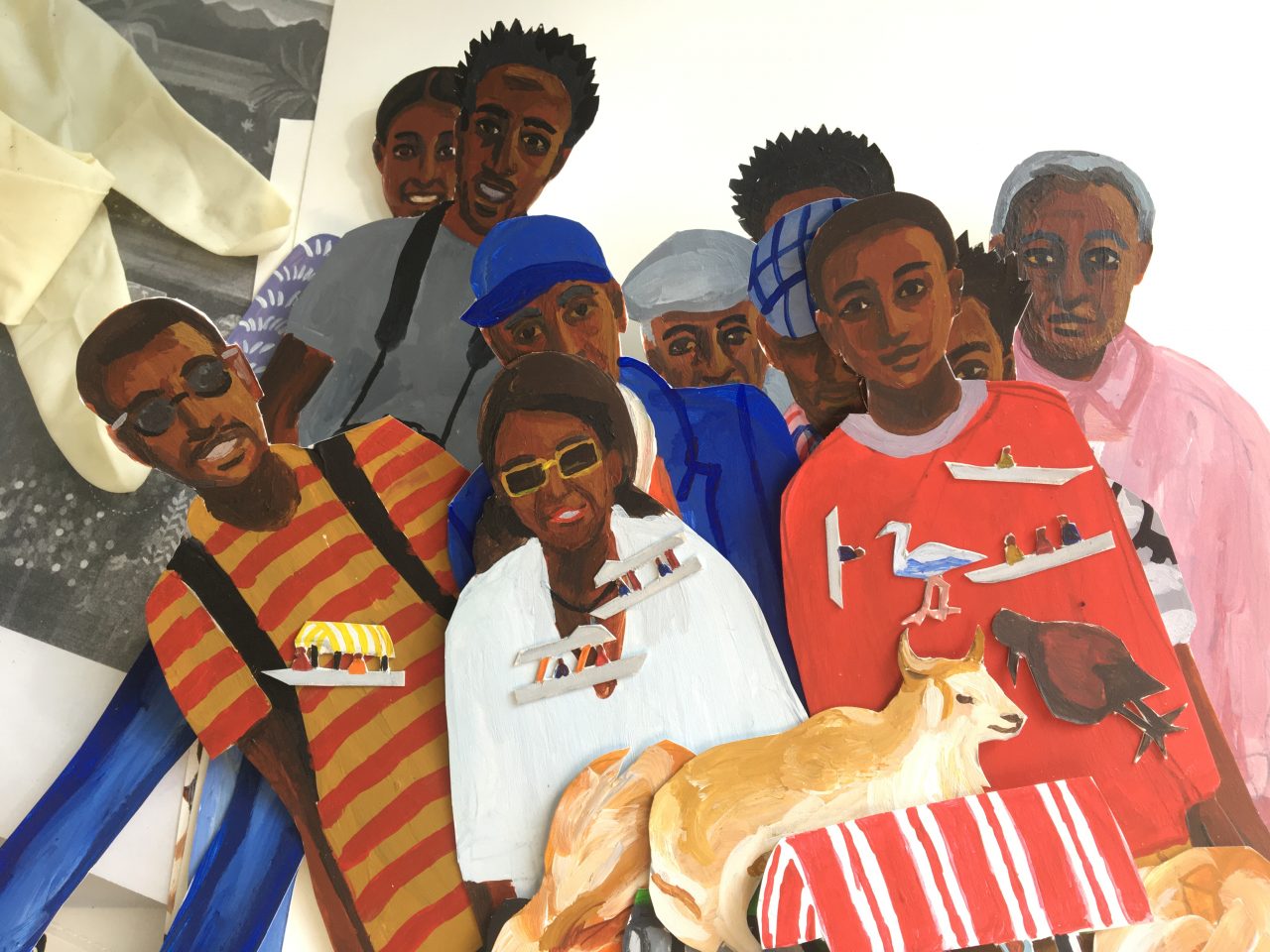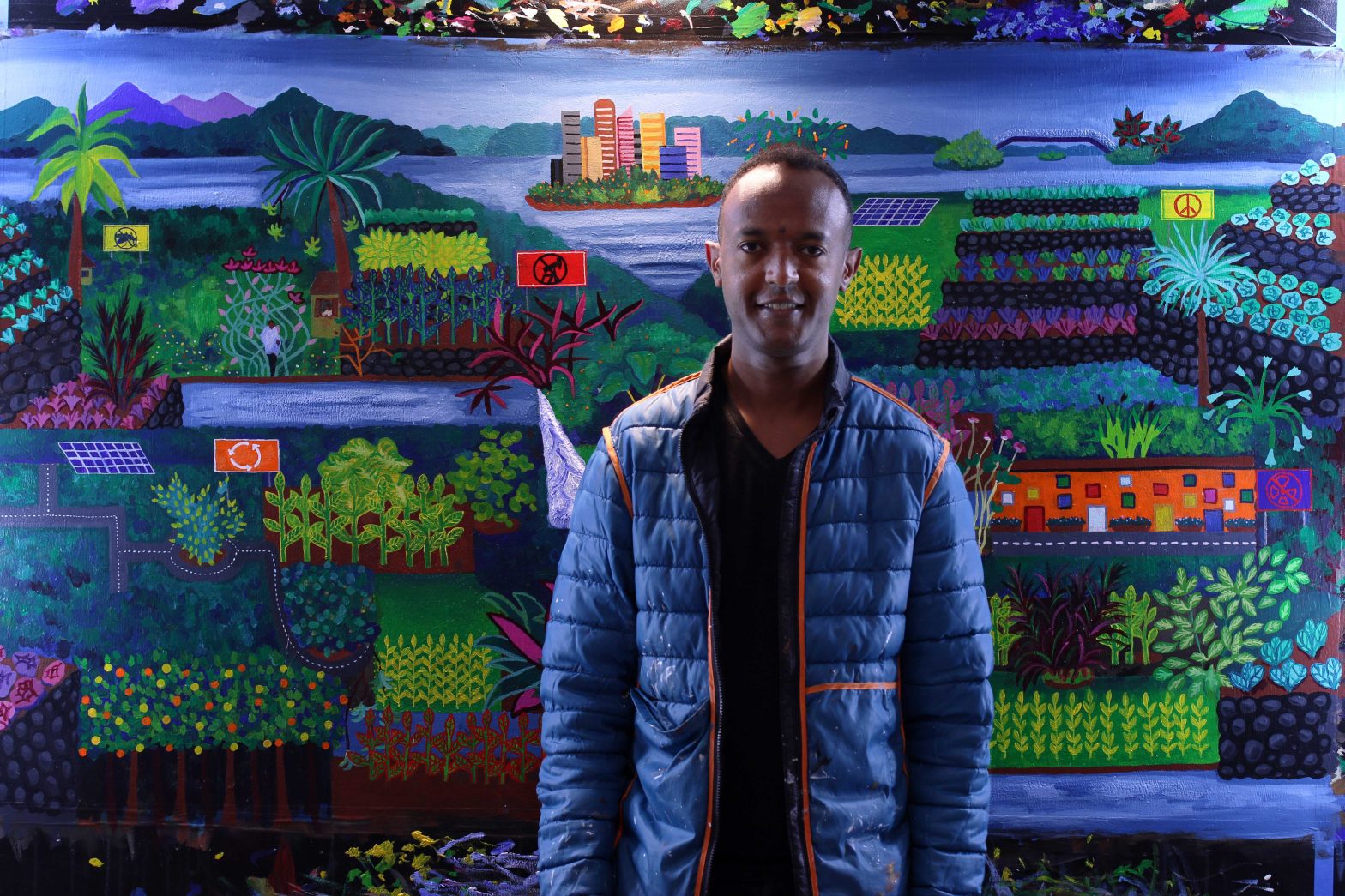At Little Sun, we believe in the power of the arts to raise climate change awareness and help us imagine a more sustainable future in which everyone thrives. This is why we’re delighted to present you Fast Forward, a series of short films created by artists from Ethiopia, Senegal, and the United States and featuring over 300 global voices.
By offering open, intimate dialogue and creating accessible stories, Fast Forward aims to show that global, collectivized action against climate change is possible.
To better understand the motivation of artists to address the global energy crisis through their work, we interviewed Ezra Wube, Ghost of a Dream, Naod Lemma, Jessica Segall, and Selly Raby Kane, all part of the Fast Forward project, and discussed the role of art to light the way toward a more just and sustainable future.
Today, we meet you with Ezra Wube, the artist behind Possible World.

Ezra Wube is a Brooklyn-based mixed media artist from Ethiopia. Wube’s work references the notion of past and present, the constant changing of place, and the dialogical tensions between ‘here’ and ‘there.’ He is a veteran of Times Square’s Midnight Moment series, and his exhibition City Stories was recently on view at The High Line, NYC. Fast Forward’s short film Possible World is a painted animation inspired by interviews conducted with over 100 individuals across Ethiopia and captures their collective vision for a better world and a regenerative future.
LS: What motivated you to be part of Little Sun’s Fast Forward project?
What motivated me to be part of the Little Sun’s project was the desperate subject matter, the environment. It was also a fantastic opportunity to work with a supportive organization to realize an ambitious project addressing social concerns.


LS: Can you describe the main focus of your film?
The main focus of the project was to make a stop action animation based on interviews on the subject of sustainability. For the project, we interviewed about 100 individuals in five destinations throughout Ethiopia; teachers, brokers, farmers, students, engineers, carpenters, soldiers, merchants, taxi drivers, cashiers, security guards, housewives, managers, nurses, designers, camera man, accountants, pharmacists, architects, mechanics, technicians, retirees, and more. Reflecting on the interviewees’ responses on the potential of a sustainable world, the project intends to instigate conversations and inspire action through imaginative discourse.






LS: Why did you choose to explore this subject? Did anything, in particular, inspire you?
Growing up in a country where over 80 percent of the population’s livelihood depends on agriculture (mostly rain-fed), its socioeconomic dependency is extremely vulnerable to the rapid climate change we are facing. I chose to explore the subject as a means to investigate and learn these conditions, and to have a communal dialogue of possible solutions. I’m inspired in creating work through community engagement where individuals’ voices can be a potential catalyst for actions to develop a sustainable world.
LS: What role do you think artists can play in our shift to a regenerative world?
I believe creativity and relatability are some of the strongest ideas artists can contribute to the subject. Artists can be highly perceptive of the world, allowing them to predict future outcomes. They can contribute creative endeavours to tackle challenges. Through their emotive reflections, artists can translate and communicate abstract ideas such as scientific statistical data into a relatable experience.
LS: What’s been the highlight of working on this project for you?
One of the highlights of the project for me was processing all the interviews from various individuals. I also enjoyed the artistic challenge of working a collective idea into a cohesive piece.

LS: How about the challenges? Were there any unexpected surprises?
The main challenges were mainly due to the panadamic which limited our travel destinations. Communication was also a challenge sometimes due to time zone differences between Ethiopia and the U.S.*
Some of the unexpected surprises were that most of the farmers we interviewed were keen on modernizing their agricultural practices without nostalgia for traditional methods. Another surprise was that for most interviewees, their imagined sustainable world consisted of a harmonious natural world equipped with the most advanced technologies, electric cars, wind power and solar energy.
*Note of the editor: some of the Little Sun team members working on this project are based in the United States.
LS: What’s next for you after Fast Forward?
What’s next for me after this project is teaching. I have two new courses that I’m excited about.
To watch all short films and read more about the Fast Forward artists and advisors, click the button below.


